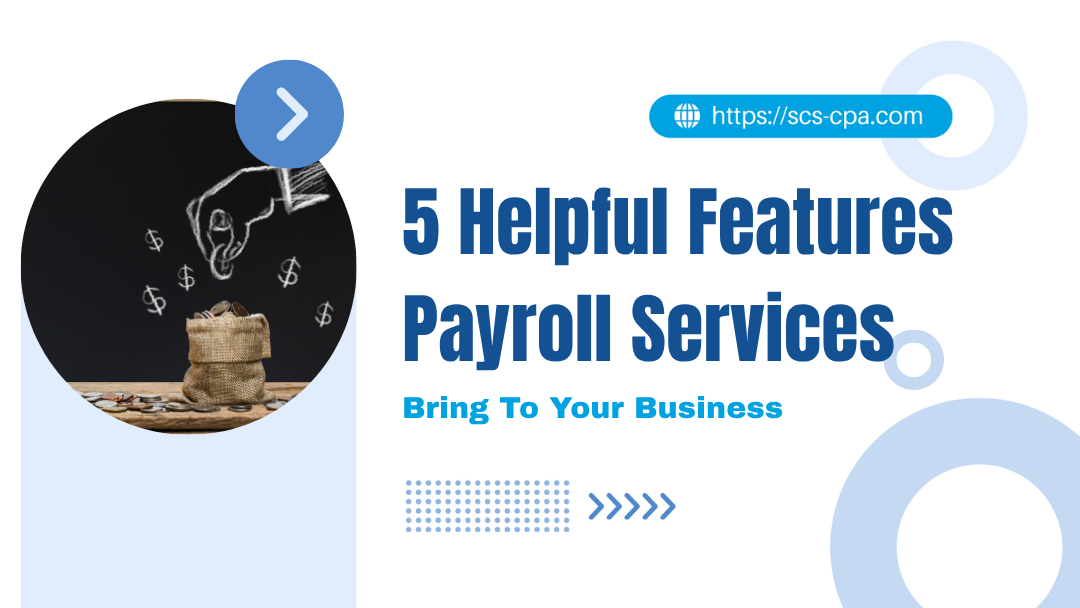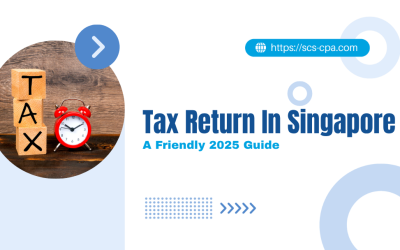
Before subscribing to any payroll services, do you really know what you are paying for?
Payroll is often mistaken as simply “pushing salaries through each month.” But in reality, payroll is a complex, compliance-driven process. Tax filing mistakes, delayed salary disbursements, or missing records lead to dire consequences. Meaning, you may pay hefty fines or face dissatisfied co-workers.
Today, we will explore various payroll features available in Singapore and outline key questions to ask your provider. We hope that they provide you with valuable insight before you make your final decision.
What Features Do Payroll Services in Singapore Include?
An effective outsourced payroll provider goes well beyond calculating salaries. It ensures compliance with labour regulations, alleviates workload, and builds employee trust.
[ More readings: Benefits of Payroll Outsourcing in Singapore ]
Salary Calculation And Processing

Payroll services ensure accurate computation of gross and net salaries based on:
- Basic salary
- Overtime pay
- Performance bonuses
- CPF contributions
- Employee-specific allowances and levies
These calculations conform to employment contracts and the Ministry of Manpower (MOM) regulations. Many providers cater to various salary cycles, like monthly, biweekly, or ad hoc. They also support approval hierarchies to reduce errors.
Statutory Compliance

Singapore’s payroll system is strictly regulated. In 2022, a local logistics company was fined for not issuing itemised payslips and under-declaring CPF contributions. This led to government penalties, required back payments, and a damaged reputation.
Payroll service providers help ensure compliance with important rules, such as:
- Central Provident Fund (CPF) — employer and employee contributions
- Skills Development Levy (SDL) and Self-Help Group (SHG) contributions
- Tax submissions to IRAS — including IR8A, Appendix 8A/8B, and IR21 (for foreign workers)
- Issuing Key Employment Terms (KETs) and itemised payslips under the Employment Act
Tip: New to compliance and regulations? The MOM Workright Employer Toolkit has 6 key steps for employers to meet their legal obligations. It includes templates for payslips and employment terms.
Payment Disbursement And Payslip Issuance

Reliable payroll services make sure employees receive the correct pay on time. Disbursement capabilities typically include:
- GIRO transfers to employee accounts
- Batch payment uploads are compatible with local banks, like DBS IDEAL, OCBC Velocity, and UOB BIBPlus
- Auto-generated, MOM-compliant itemised payslips issued via: Encrypted email and Secure, self-service employee portals
Advanced systems also track the disbursement schedule, flag errors, and log approval statuses. These features ensure full auditability while improving efficiency and problem-solving.
Bonus Features to Look For:
If you use remote or international teams, some outsourced payroll providers also offer:
- Multi-currency disbursement options
- Automatic alerts for upcoming payroll deadlines
- Secure pay slip storage and archiving for five or more years
Record Keeping And Reporting

A solid payroll system also doubles as a source of truth for compliance and financial reporting. Look for providers that offer:
- Payroll data achieved for at least 5–7 years in line with IRAS and MOM guidelines
- Monthly summary reports with payroll costs, CPF contributions, and employee-level breakdowns
- Year-end tax report preparation for IRAS submission
- System integrations with accounting software like Xero, QuickBooks, or ERP systems
With efficient record keeping, you can support internal audits and better prepare your company for any statutory reviews.
Outsourcing And Automation

One of the biggest benefits of an outsourced payroll provider is operational efficiency. Rather than handling recurring payroll cycles manually, outsourcing enables:
- Automated payroll runs with clear cut-off timelines
- Lower manual data entry and error rates
- Time savings for HR and finance teams
- Built-in compliance reminders and deadline tracking
Moreover, some providers like HReasily even have HR add-ons to centralise your back-office processes. Among them are leave management, employee claims, and tax advisory services.
Handling Payroll for Foreign Workers

Varying regulations, levies and documentation requirements complicate managing payroll for foreign employees.
A good outsourced payroll provider should help with:
- Work Permit, Employment Pass (EP), or Letter of Consent (LOC) tracking
- Monthly Foreign Worker Levy (FWL) management
- CPF contributions or exemptions for eligible foreign staff
- IR21 tax clearance submissions when a foreign employee departs Singapore
If you have businesses operating regionally, certain providers also support multi-entity payroll. This support helps manage the payroll of foreign staff with updated compliance knowledge and practices.
Things to Ask Your Provider
Not all payroll services are the same. So, we compiled these questions as a checklist for you to use when comparing vendors:
“What’s included in your standard package?”
Clarify whether statutory filings, CPF submissions, payslip issuance, and bank disbursements come as a package. Or, are they charged as add-ons? It is an important question to understand what you are subscribing to.
“Do you provide compliance alerts?”
Check if your provider monitors regulatory changes from MOM, IRAS, and CPF to ensure compliance. Meanwhile, you must also clarify whether they will proactively update your settings or notify you of required actions.
“Can I access reports on demand?”
Ensure the system allows you to generate and download essential reports as needed.
“Is your platform cloud-based or on-premise?”
If your company has remote or hybrid teams, cloud-based systems with 24/7 secure access are vital for smooth operations.
“How is data security handled?”
Ask about encryption standards, access control, and certifications such as ISO 27001.
“What’s the payroll timeline and cut-off?”
Understand the required lead time for submitting data and when salary payments will be processed.
Do you handle tax clearance and year-end filing?
This is particularly important if you use expatriates or experience high staff turnover.
Are You Prepared With All the Details?

Getting payroll right is not only a monthly routine. The advantages of outsourcing payroll services include
- Building a trustworthy, compliant, and scalable business
- Reducing risks and unwanted workload
- Helping you focus on growing your business
Need help comparing providers or understanding your business’s unique payroll requirements? Start with our Payroll Services Guide, or contact one of our certified payroll advisors for clarity on Singapore’s ever-evolving regulations.
Have A Question?
Our experienced advisors
will be there to answer them.
Connect with us for a free
consultation to begin your
business transformation.
Corporate Income Tax Malaysia: Rates, Filing, and Strategic Compliance
Understand Malaysia’s corporate income tax system. Learn current tax rates, SME tiers, filing deadlines, LHDN requirements, penalties, and more.
Understanding the Core Types of Audits and Their Roles in Accounting in Singapore
Learn the key types of audits in Singapore to build trust and stay compliant. Examples are statutory, internal, GST, and forensic.
Tax Return In Singapore: A Friendly 2025 Guide
Want to be a responsible business owner? Read this guide to tax return in Singapore to help understand tax filing and play your part.



